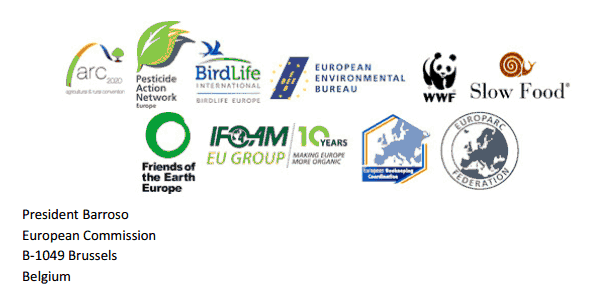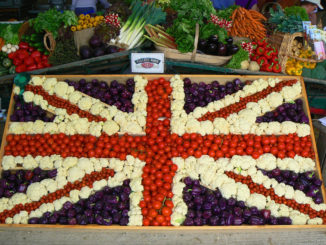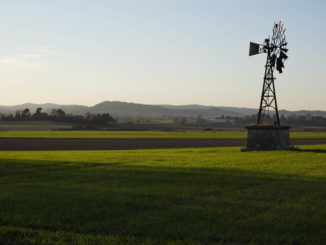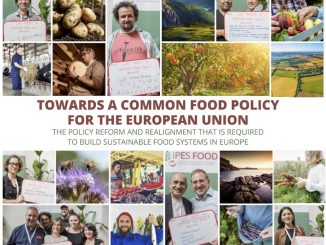In the run up to the crunch date of 11th March, pressure is mounting on all fronts to save what is left of greening and the so called reform of the Common Agriculture Policy (CAP). In particular, there has been a sustained focus to keep pesticides out of Ecological Focus Areas (EFAs). Agriculture Ministers, the Parliament and the Commission have all been targeted in a wide ranging, multi- stakeholder set of actions. These include our campaign to contact ministers to keep pesticides out of EFAs, which you can still do.
The most recent activity has been to pile the pressure onto Commissioner Barroso and the other Commissioners, who have what is called a college debate on the Common Agricultural Policy’s Delegated Acts on the 11th March next.
The core issue is turning the CAP’s Basic Acts into Delegated Acts, and the last minute anti-greening adjustments that may be occurring. Delegated Acts are written by the Commission, but are not supposed to substantially deviate from the agreements of the Basic Acts.
However, according to the new letter above, spearheaded by Angelo Caserta regional director of BirdLife Europe, “We are worried that as it stands, some of the delegated acts might deviate from that very first objective of the reform and hence from the spirit of the basic act”.
Along with Arc2020, each of the following organisations have signed the letter: Birdlife Europe, Slow Food, IFOAM EU, Pesticide Action Network Europe, World Wildlife Fund, European Environmental Bureau, Europarc, Bee Life and Friends of the Earth Europe.
Three crucial issues have been brought up by this wide spectrum of agri-food and environmental opinion.
(i) No pesticides or fertilizers in EFAs
(ii) Greening should go beyond cross compliance
(iii) Eligibility rules should take into account High Natural Value farming characteristics.
The details:
(i) No pesticides or fertilizers in EFAs
The delegated acts on Ecological Focus Areas (EFAs) are of most concern. EFAs are meant to preserve and enhance biodiversity as a very first objective by ensuring the preservation and creation of some semi-natural areas within the landscape. These areas are crucial for the delivery of ecosystem services, in particular functional biodiversity (pollinators, pest predators, etc.) which is necessary for maintaining productive and resilient farming systems capable of ensuring long term food security.
Therefore it should not be allowed to use any chemical inputs on these areas, be it either from pesticides or fertilisers. This is especially relevant for nitrogen fixing crops. The justification by many Member States and MEPs to include nitrogen-fixing crops under EFAs was due to the fact they are grown without any form of fertilizers and that they have more environmental value than other crops. Agrochemical use and biodiversity management are not compatible and should not be permitted when growing nitrogen-fixing crops on EFAs.
Therefore the Commission must ensure that there are strict criteria in the delegated acts which clearly ban the use of synthetic fertilisers and pesticides on EFAs.
(ii) Greening should go beyond cross compliance the greening payment is supposed to deliver extra public goods. It therefor should require measures that go beyond the cross compliance obligations. Only by requiring greening to go beyond the minimum standards, will one see the necessary changes on the ground.
Therefore we call upon the Commission to ensure that greening goes beyond the basic cross compliance measures.
(iii) Eligibility rules should take into account High Natural Value farming characteristics.
We believe that a width limit of landscape elements set at 2 metres fails to take into account the realities of traditional High Nature Value mosaic farmland. Diverse agroforestry and other grazing systems involving genuinely active farmers are discriminated against.
References to the size of landscape elements, number of trees or canopy coverage should be revised in order to match the reality of the different forms of active farming in Europe.
Now is a great time to make this final multifaceted push to save CAP greening. So contact your minister, or contact a Commissioner today!






